
Setting and Achieving Goals
With support from a caring grown-up, autistic children can set goals, make a plan, and accomplish big things! Read on for expert parenting advice for parents of autistic kids.
Setting and achieving goals builds confidence for young children, and when they receive help from others, their sense of belonging grows, too. You already do this when you encourage your child’s desires, help them make plans, and offer support and encouragement along the way.
I want to…
All children have things they want to do or try, and autistic children are no different. Your child may need your help imagining what’s possible or translating their interests into actions. Take notice of their likes and dislikes: If they like making art, perhaps they’d like to make some special pictures to display around your home. Whatever it is, remind your child that you’re excited about the things they want to do and are here to help however you can.
I will…
Breaking a task down into very small steps makes it more manageable and memorable for children. For autistic children, it may help to be even more specific. Brainstorm together with your child about what steps they’ll need to take to accomplish their goal. Each child will need a different level of support; let them lead as much as you can.
Visual reminders can help, too. You might take photographs or draw pictures to display each step in your child’s plan. For example, if your child’s goal is to get dressed for school, you might label drawers, or even take pictures of how to put on and fasten clothes and shoes.
I’ll try (and try again)!
No matter our best efforts, things don’t always go to plan. Luckily, we can always try again. This can be frustrating, so it’s important to practice persistence in lower stakes situations. Remind your child that there are many ways to accomplish a goal, and sometimes exciting things happen when our plans change.
How’s it going?
Tracking your progress is an important part of reaching a goal and learning from your efforts. Taking note of what’s working well can spark celebrations for you and your child. And noticing what’s not quite working can help you adjust your plan for the next try. At the end of each day or week, check in with your child about their goal, being sure to point out their amazing effort.
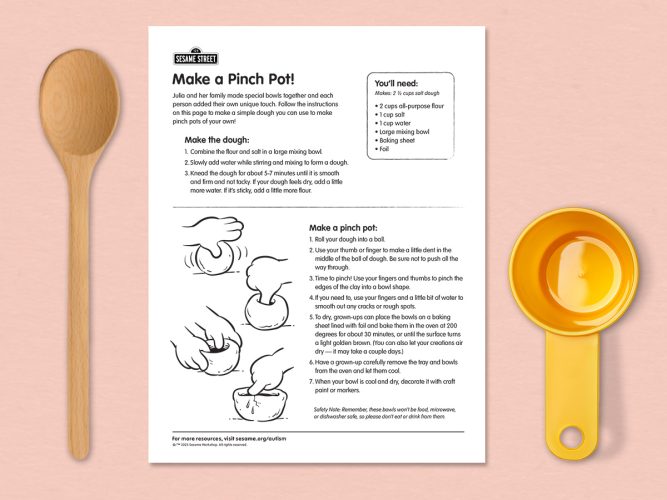
Make a Pinch Pot!
Simple craft instructions to help your family make pinch pots from homemade dough together.

Sharing Amazing
An adult-child coloring page to spark ideas and connection.
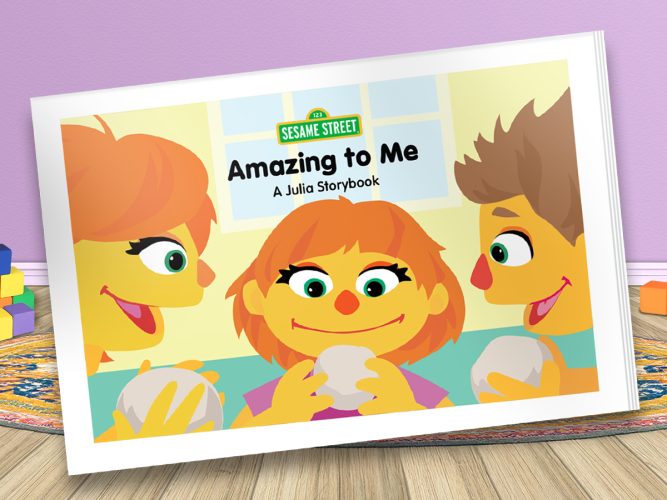
Amazing to Me
When Julia and her family do a special art activity together, Julia finds a way to add her own amazing touch!
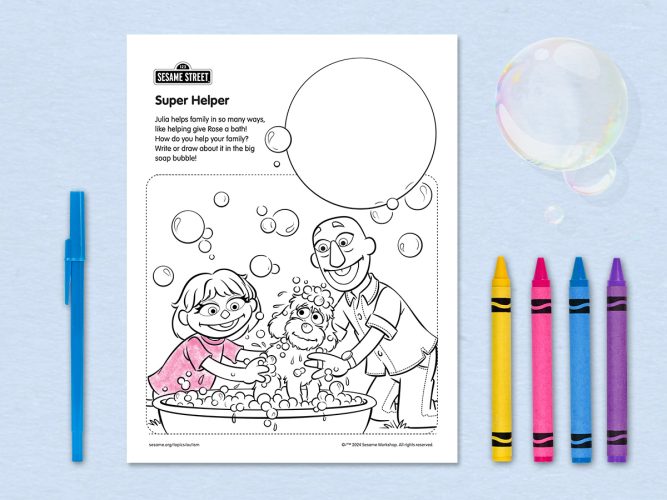
Super Helper
Finding ways to help their family can be a great way for autistic children to build skills and pursue goals. Download and share this autism-friendly coloring activity.

Exploring the Amazing in Autistic Children: A Conversation with Camille Proctor, Founder of The Color of Autism Foundation
An article to help parents discover and support their autistic child’s unique perspective and personality
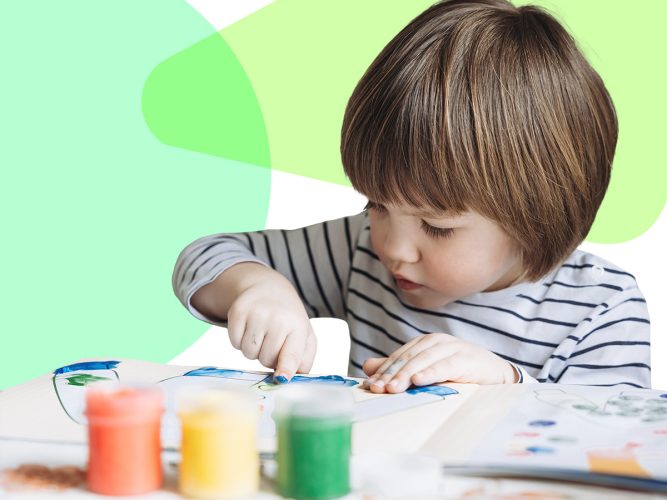
Creative, Talented, Amazing: A Conversation with Anna Wang, Co-founder of FCSN, about fostering autistic children’s talents
An article to help parents foster creative exploration and expression in their autistic child.
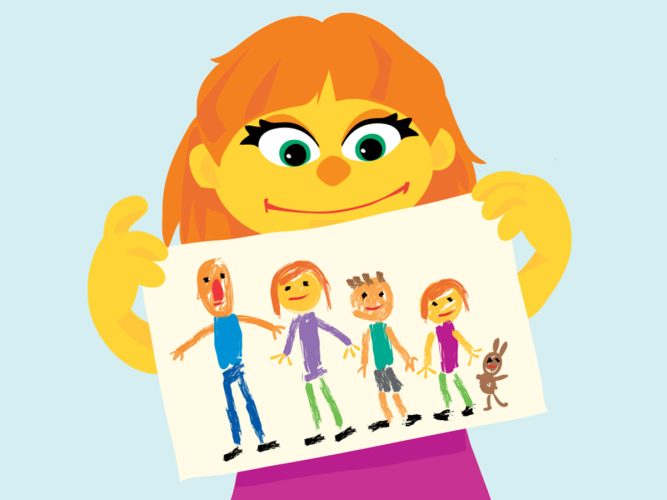
Autism and the Arts: A Conversation on Creativity and Community
